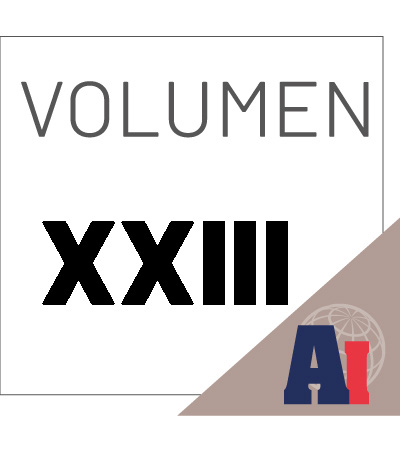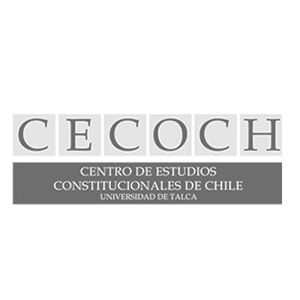War in Ukraine: How Did we Get There and is There a Way Out of It?
In 2022 the world has entered into a phase of geopolitical and geo-economic reconfiguration with the emergence of multipolar elements. The armed conflict on the territory of Ukraine is a military phase of a geopolitical standoff between the collective West, embodied mainly by the United States and NATO, and those for whom Western domination is not acceptable, epitomized in that case by Russia. But how did the world, after the Fall of the Berlin Wall and justified expectations of a peaceful future, find itself in a situation where the use of military force has become almost normal, at least until it is used against those Europeans who had chosen the “right side of history”? How and why, towards the end of history, the most important principles of international law became twisted and reinterpreted to such an extent that soon there may not be a last man left to contemplate this end? As history gives some hints about right as well as wrong ways of ending military confrontations, I will try to show in this essay how it all went wrong and what could be done about it.
Detalhes do artigo
Uso de licencias Creative Commons (CC)
Todos los textos publicados por el Anuario Mexicano de Derecho Internacional sin excepción, se distribuyen amparados con la licencia CC BY-NC 4.0 Internacional, que permite a terceros utilizar lo publicado, siempre que mencionen la autoría del trabajo y la primera publicación en esta revista. No se permite utilizar el material con fines comerciales.
Derechos de autoras o autores
De acuerdo con la legislación vigente de derechos de autor el Anuario Mexicano de Derecho Internacional reconoce y respeta el derecho moral de las autoras o autores, así como la titularidad del derecho patrimonial, el cual será transferido —de forma no exclusiva— al Anuario para permitir su difusión legal en acceso abierto.
Autoras o autores pueden realizar otros acuerdos contractuales independientes y adicionales para la distribución no exclusiva de la versión del artículo publicado en el Anuario Mexicano de Derecho Internacional (por ejemplo, incluirlo en un repositorio institucional o darlo a conocer en otros medios en papel o electrónicos), siempre que se indique clara y explícitamente que el trabajo se publicó por primera vez en el Anuario.
Para todo lo anterior, deben remitir la carta de transmisión de derechos patrimoniales de la primera publicación, debidamente requisitada y firmada por las autoras o autores. Este formato debe ser remitido en PDF a través de la plataforma OJS.
Derechos de lectoras o lectores
Con base en los principios de acceso abierto las lectoras o lectores de la revista tienen derecho a la libre lectura, impresión y distribución de los contenidos del Anuario por cualquier medio, de manera inmediata a la publicación en línea de los contenidos. El único requisito para esto es que siempre se indique clara y explícitamente que el trabajo se publicó por primera vez en el Anuario Mexicano de Derecho Internacional y se cite de manera correcta la fuente incluyendo el DOI correspondiente.
Referências
Acheson, D., “The Cuban Quarantine: Implications for the Future”, Proceedings of the American Society of International Law, 1963.
Bull, Hedley, Anarchical Society: A Study of Order in World Politics, Macmillan, 1977.
Cooper, Robert, The Ambassadors: Thinking about Diplomacy from Richelieu to Modern Times, Weidenfeld & Nicolson, 2021.
Damrosch, Lori F. and Müllerson, Rein (eds.), Beyond Confrontation: International Law for the post-Cold War Era, Boulder, Westview Press, 1995.
Friedmann, Wolfgang, The Changing Structure of International Law, Columbia, Columbia University Press, 1964.
Graeber, David and Wengrow, David, The Dawn of Everything: A New History of Humanity, London, Allen Lane, 2021.
Guehenno, Jean-Marie, Le Premier XXIe Siècle: de la globalisation à l’émiettement du monde, Paris, Flammarion, 2021.
Henkin, L., How Nations Behave: Law and Foreign Policy, Columbia, Columbia University Press, 1979.
Kagan, Robert, Of Paradise and Power: America and Europe in the World Order, New York, Alfred Knopf, 2003.
Kissinger, Henry, Leadership: Six Studies in World Strategy, Allen Lane, 2022.
Koskenniemi, Martti, ‘International Law and Political Theology’, Constellations, vol. 11, num. 4, 2004.
Lenglet, François, Rien ne va, mais... 2023, l’année qui peut nous sauver, Plon, 2022.
Mettan, Guy, Russie-Occident, une Guerre de Mille Ans: La Russophobie de Charlemagne à la Crise Ukrainienne, Éditions des Syrtes, 2015.
Müllerson, Rein, Regime Change: From Democratic Peace Theories to Forcible Regime Change, Leiden, Boston, Martinus Nijhoff Publishers, 2013.
Müllerson, Rein, “Ukraine: Victim of Geopolitics”, Chinese Journal of International Law, Oxford, vol. 13, num. 1, March 2014, available at: https://doi.org/10.1093/chinesejil/jmu011.
Müllerson, Rein, “Democratization through the Supply-Demand Prism”, Human Rights Review, vol. 10, num. 4, November 2009.
Oppenheim, L. F. L., International Law: A Treatise, London, Peace, 1905, vol. I.
Sharnak, Debbie, Jimmy Carter, Cambodia, and the United Nations: Human Rights in a Cold War Climate, University of Wisconsin-Madison, April 2010.
Twiss, Travers, The Law of Nations Considered as Independent Political Communities: On the Rights and Duties of Nations in Time of Peace, Oxford, 1861.
Vattel, Emer de, Le Droit des Gens. Ou principes de la loi naturelle, London, Apud Liberos Tutior, 1758, t. 2.
Védrine, Hubert, Le Monde au Défi, Paris, Fayard, 2016.
Vereschcetin, Vladlen Stepanovich and Müllerson, Rein, “The Primacy of International Law in World Politics”, Sovetskoe Gosudarstvo i Pravo, vol. 7, num. 6, 1989.
Watson, Adam, The Evolution of International Society, New York, Routledge, 1992.

































